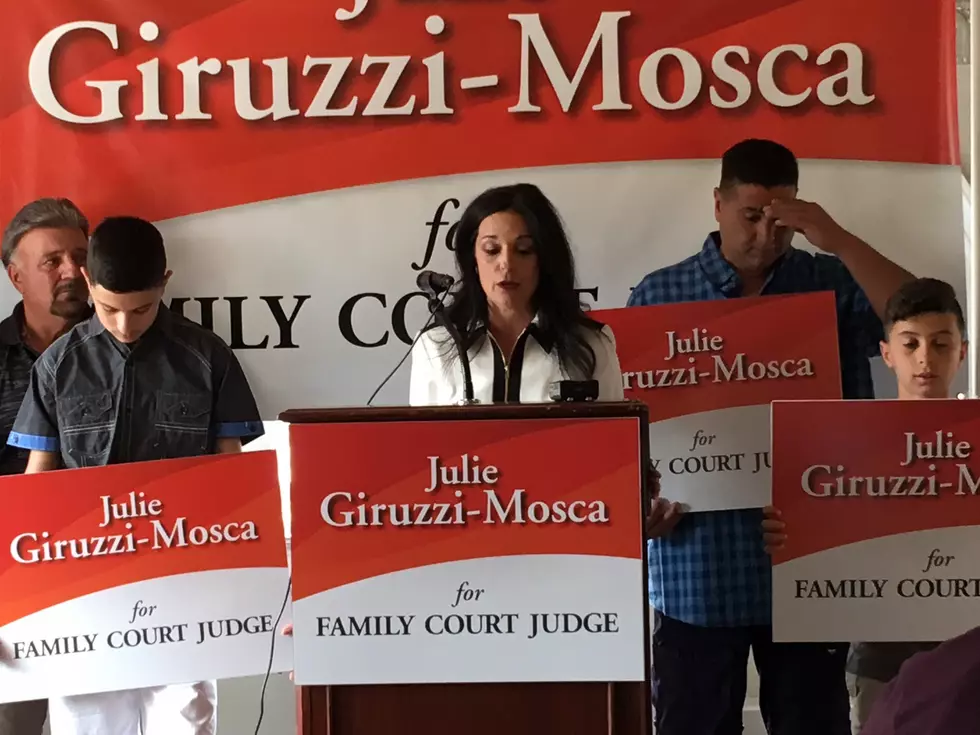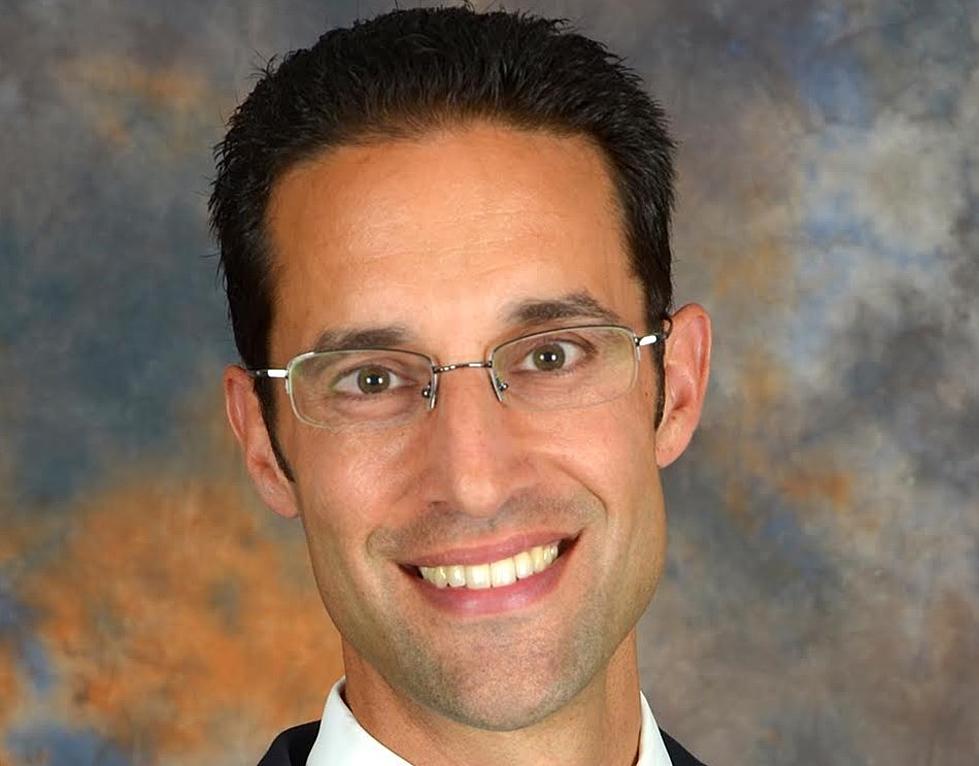Family Court Judge’s Claims in Commercial Questioned During Radio Interview
A political television commercial advertising the campaign of Oneida County Family Court Judge candidate Dawn Catera Lupi (D) came under fire during an interview on First News with Keeler on Friday morning.
The issue at hand, three statements made during the commercial by Catera Lupi that WIBX's Bill Keeler questioned as possibly unethical.
Statements made by Catera Lupi in the 30-second commercial, entitled "I Know the Signs" -
1- "I know the difference between a confused juvenile and a criminal in waiting."
2- "I can tell when tension between a man and a woman will explode into violence."
3- "I know when a conflicted child is hiding the painful secret of abuse."
Keeler asked how she would ever be able to know the answer to any of these questions when even psychologists struggle to come to these conclusions.
"I think I was trying to portray my experience in dealing with people," Catera Lupi said in speaking of her 26-years as a prosecutor. "I have dealt with people who are victims of domestic violence, both men and women...and there are signs in relationships."
The discussion also turned to New York's rules on Judicial Ethics and specifically the rules regarding advertising claims. Catera Lupi said she feels she is within the boundaries set forth by the Ethics Board.
Catera Lupi will face Julia Brouillette (R) and Karen Stanislaus (Independence) in Tuesday's election for the new judge's position, the fourth being added to Oneida County by the State Legislature due to a heavy caseload.
Listen to the complete interview here:
Read the rules for campaign advertising here.
Read the portion of the guidelines that pertain to advertising here:
(Opinion 05-119), but may not sign a pledge to support a political party’s platform (Opinion 93-52 [Vol. XI]). The Commission on Judicial Conduct has publicly admonished a judge for use of campaign literature advertising a lecture the judge planned to give with a “tenant attorney and activist” on how to “beat your landlord, ... and win in court!” (2010 CJC Ann. Rep. at 124-28 [disciplinary determination]). The Commission has also publicly admonished a judge for statements which, when viewed in their entirety, conveyed bias because they “single[d] out a particular class of litigants for special treatment” (2011 CJC Ann. Rep. at 120-24). Further, if a judicial candidate has made an improper promise during his/her campaign, he/she may be required to disqualify him/herself in certain matters (22 NYCRR 100.3[E][1][f]; see also infra Section 8.4).
Campaign material may include a truthful, dignified discussion of the candidate’s qualifications and the qualifications of his/her opponent(s), as long as the discussion is accurate and not misleading (Opinions 04-16; 90-67 [Vol. V]; 2007 CJC Ann. Rep. at 115-18 [disciplinary determination]). A judicial candidate may not, in the guise of discussing qualifications, make an otherwise prohibited statement (NYSBA Opinion 289).
A judicial candidate may refer to his/her current and past employment in campaign materials, including service on the staff of sitting judges (Opinion 97-32 [Vol. XV] [noting that the mere listing of the names and titles of these judges does not constitute impermissible participation by those judges in the judicial campaign]).
A judicial candidate should not use quotations from letters written by judges or quasi-judicial officials of the Unified Court System in his/her campaign literature, because it would imply that the person quoted was endorsing the judge’s election (Opinion 08-64; 22 NYCRR 100.5[A][1][e]). However, it is ethically permissible for a judicial candidate to use quotations from letters written by individuals who are not subject to Part 100.5, as long as the candidate ensures that doing so does not mislead the public (Opinion 08-64). Thus, if a judicial candidate wishes to use quotations from letters written in support of his/her nomination for a prestigious award, the candidate should clearly indicate the date and the original purpose for each quotation, and any other information required to ensure that each quotation is presented accurately (id.).
Judicial candidates on the same slate may jointly advertise their candidacies and refer to the number of years of judicial experience of each candidate, but may not refer to the total number of years of judicial experience of the candidates collectively (Opinion 99-117 [Vol. XVIII]). See also Section 5.5, infra, for a discussion of joint campaigning.
A judicial candidate may not knowingly make a false statement or misrepresent the identity, qualifications, current position or other fact concerning himself/herself or his/her opponent (22 NYCRR 100.5[A][4][d][iii]). A judicial candidate should take care to ascertain the truth of claims that he/she makes about an opponent, and be careful not to create a false impression of his/her opponent’s record by omitting relevant facts (2007 CJC Ann. Rep. at 115- 18 [disciplinary determination] [noting that there is no place for distortions in a campaign for judicial office]).








-28-
The Commission on Judicial Conduct has publicly admonished a judicial candidate for using campaign literature which “conveyed the erroneous impression that respondent had been endorsed” by a particular newspaper (2010 CJC Ann. Rep. at 124-28 [disciplinary determination]).
The Commission has also disciplined a judicial candidate for stating that as a Supreme Court Justice, he/she “will still be responsible for all pistol permits” in a particular county (2011 CJC Ann. Rep. at 120-24). The Commission found that the representation was “legally incorrect” because it misrepresented the candidate’s jurisdiction over pistol permits as exclusive, and also found that this misstatement of law “buttressed” the candidate’s overall “biased message” (id.).
A judicial candidate may comment on an opponent’s conduct, subject to certain limitations (Opinion 12-129[A]-[G], at Question 4). During a campaign for judicial office, a candidate may bring to the public’s attention the fact that his/her opponent has been publicly admonished or censured by the Commission on Judicial Conduct as long as such reference is made in a manner that maintains the dignity appropriate to judicial office (Opinion 01-98).
It is also permissible to refer to ratings by screening panels and independent judicial election qualification commissions; see Section 3.3.2, supra, for a discussion of relevant opinions.
A judicial candidate may respond to personal attacks or attacks on the candidate’s record as long as the response is consistent with the requirements of the rules, i.e., dignified, truthful, etc. (22 NYCRR 100.5[A][4][e]).
A judicial candidate is prohibited from appealing directly or indirectly to the fear, passion or prejudice of the electorate or from appealing purposefully to or against members of a particular race, sex, ethnic group, religion or similar group (Opinion 05-119; NYSBA Opinion 289).
More From WIBX 950







![Brouillette Sworn In As Oneida County Family Court Judge [VIDEO]](http://townsquare.media/site/41/files/2015/01/Julia.png?w=980&q=75)

